As the colder months set in, propane heaters become a popular choice for keeping indoor spaces warm and cozy. While these heaters offer efficient heating solutions, it’s vital to understand the potential risks and dangers associated with their indoor use.
This blog post aims to shed light on the safety implications of using propane heaters indoors by delving into scientific research, statistics, and incidents. Moreover, we will provide expert insights and recommend precautionary measures for ensuring the safe use of propane heaters, emphasizing the importance of following guidelines to safeguard ourselves and our loved ones.
The burning question many homeowners and users often ask is: Are propane heaters safe to use indoors?
Here’s a closer look.
Understanding Propane Heaters
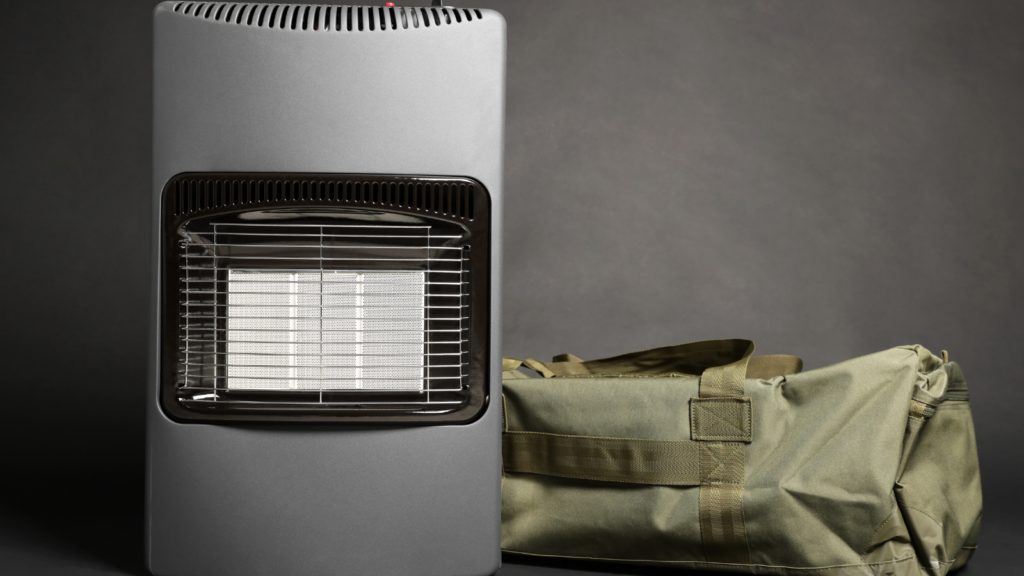
Propane heaters are a valuable off-grid heat source for preppers during emergencies, providing both indoor and outdoor options to ensure comfort and survival in challenging situations.
Firstly, let’s distinguish between indoor and outdoor propane heaters and understand their respective features and functionality. [1]
Indoor propane heaters are specifically designed for indoor use, providing heat for a single room or small area. They are typically portable, compact, and easy to set up, making them suitable for emergencies where power outages and loss of central heating occur.
On the other hand, outdoor propane heaters are designed for open spaces such as patios, campsites, or larger outdoor areas. They offer wide coverage, higher heat output, and can effectively warm up larger spaces.
One of the significant benefits of propane heaters is their efficiency. Propane is a highly energy-dense fuel, meaning it generates a significant amount of heat with a relatively small amount of fuel compared to other sources.
This allows propane heaters to provide warmth for a more extended period, maximizing fuel efficiency and reducing the need for frequent refills. It is crucial for preppers to stock up on propane cylinders to ensure a sufficient supply during emergencies.
Portability is another advantage of propane heaters. Preppers who are constantly on the move or need to relocate quickly can rely on propane heaters to keep them warm in various locations.
With their compact design and lightweight nature, these heaters can easily be transported in a vehicle or carried by hand.
This portability is particularly useful during evacuation scenarios or when staying in temporary shelters.
Propane heaters are also highly reliable compared to other off-grid heat sources. Unlike electricity-dependent heating systems, propane heaters do not rely on the power grid, making them immune to power outages.
When other heating methods, such as wood-burning stoves or generators, may not be practical or available, propane heaters ensure a consistent and reliable source of heat.
Moreover, propane can be stored for long periods without deteriorating, making it an ideal fuel source for emergency preparedness.
Indoor vs. Outdoor Propane Heaters
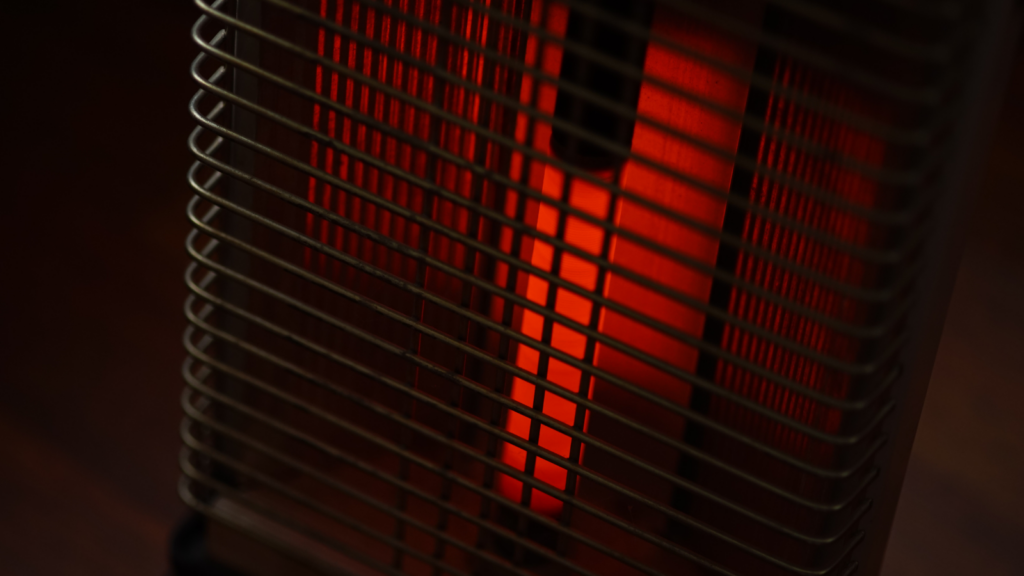
There are two types of propane heaters, and understanding the difference is a key aspect of staying safe.
Indoor propane heaters are designed with specific safety features, namely oxygen depletion sensors (ODS) and tip-over switches. They’ll automatically shut off if airflow drops below a safe level.
On the other hand, outdoor propane heaters burn fuel at a much higher rate, and often lack ODS and tip-off detection. They’re safe for use in open-air environments, but if operated indoors they create a significant risk of carbon monoxide poisoning.
U.S. Safety Standards for Propane Heaters
Propane heaters must adhere to specific safety standards and regulations in the United States, including the voluntary standard for Portable Type Gas Camp Heaters.
Certifications from organizations like the American National Standards Institute (ANSI) serve as a reliable benchmark for consumers. These certifications ensure the heaters meet the minimum safety requirements to mitigate risks.
Key Safety Concerns
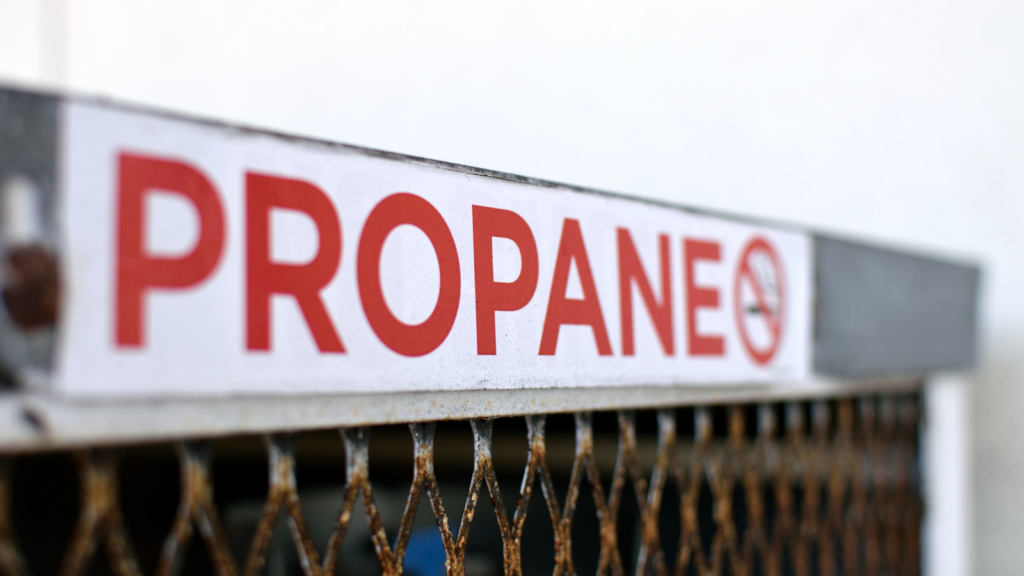
When considering a propane heater for indoor use, you must know three significant safety concerns: carbon monoxide risks, fire hazards, and oxygen depletion.
Carbon Monoxide Risks
One of the most pressing concerns when using a propane heater indoors is the risk of carbon monoxide (CO) poisoning. Numerous cases of carbon monoxide poisoning have been reported due to inadequate ventilation, improper usage, or malfunctioning equipment.
CO is a highly toxic gas that is both colorless and odorless, making it almost impossible to detect without a carbon monoxide detector.
Install carbon monoxide detectors in areas where propane heaters are being used. These detectors can provide early warnings, allowing occupants to evacuate or leave the room before exposure becomes dangerous.
Fire Hazards
Propane heaters pose a potential fire hazard due to their open flames and hot surfaces. Accidental contact with propane space heaters with flammable materials can quickly ignite, leading to a devastating fire.
Statistics show that thousands of residential fires occur each year due to improper use and the mishandling of propane heaters.
Following all manufacturer placement guidelines and checking for any signs of leaking gas is crucial to prevent fire-related accidents.
Oxygen Depletion
Burning propane consumes oxygen from the surrounding air. Operating a propane heater in a confined space can lead to a depletion of oxygen levels, causing suffocation or adverse health effects.
This is why indoor propane heaters often come equipped with an oxygen depletion sensor to automatically shut off the unit if oxygen levels in the room fall below a certain point.
Tragically, outdoor propane heaters have been used with lethal results by folks camping in a tent or inside a truck bed covered with a cab top when sleeping outdoors, especially during hunting season.
Safe Usage Guidelines
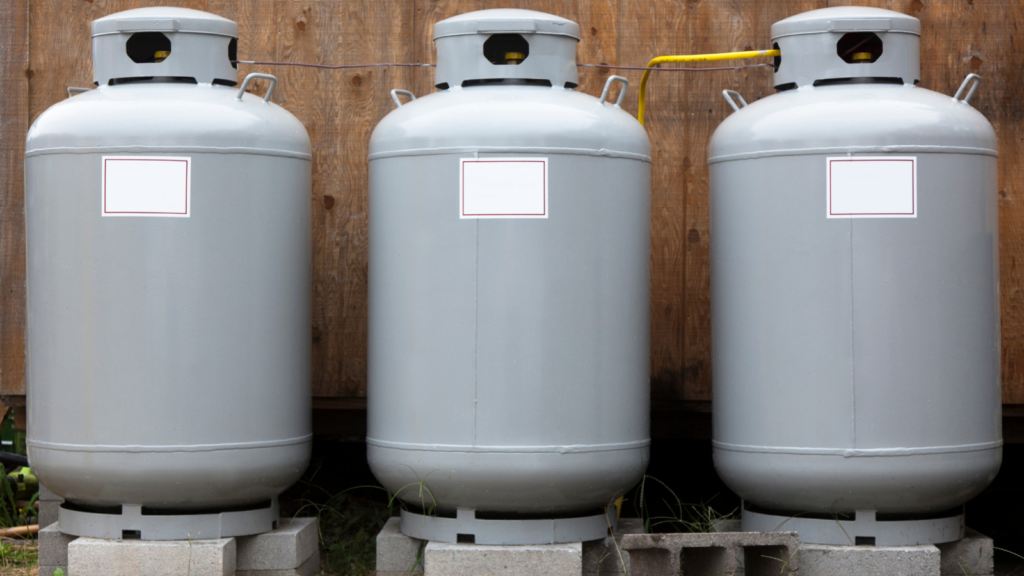
When using an indoor propane heater, always follow these important propane safety guidelines. [2]
Positioning the Heater
Place the heater on a stable, level surface and keep it at least three feet away from flammable items like curtains, furniture, or papers.
It is crucial to ensure adequate ventilation when using propane heaters indoors. Never use a propane heater in a tightly sealed room. Doors and windows should be partially opened to allow fresh air exchange and prevent the buildup of dangerous levels of carbon monoxide.
Always refer to the manufacturer’s guidelines for additional positioning instructions.
Considerations for Children and Pets
Prevent accidental contact or burns by placing heaters in areas inaccessible to young hands or wandering paws.
Additionally, opt for heaters equipped with protective screens or guards. These barriers help mitigate risks by acting as a buffer between the heat source and curious beings.
Special Cases: Bedrooms and Garages
Deploying propane heaters in bedrooms or garages comes with a specific set of considerations. These areas, often confined, emphasize the importance of proper ventilation. Always have an open window or another ventilation outlet to ensure continuous air exchange, allowing any accumulating gases to dissipate.
In bedrooms, place heaters well away from bedding, clothing, or any other materials that can easily catch fire. Similarly, in garages, be vigilant about the heater’s location, keeping it distant from stored chemicals, fuels, or cluttered tools.
Maintenance and Upkeep

Ensuring regular maintenance and diligent upkeep are essential in prolonging your propane heater’s life while maintaining operational safety and efficiency.
Cleaning Your Propane Heater
A consistent cleaning routine is indispensable to keep your heater running at its best.
Over time, dust and debris can accumulate on the heater’s surface and within vents, affecting its performance and even posing a fire risk if not handled appropriately.
To clean your propane heater, use a soft-bristled brush or a vacuum cleaner with a brush attachment to remove any dust or dirt that has built up gently. Always ensure the heater is turned off and cool to the touch before beginning the cleaning process.
Following the manufacturer’s guidelines for cleaning and maintenance is important, as some heaters may have specific parts that need additional care or should not be touched at all.
Checking for Leaks
It’s equally vital to frequently check your propane heater for gas leaks, as these pose immediate safety risks.
A simple yet effective way to check for leaks is by applying a mixture of soap and water along the gas line connections and joints. Turn the gas slightly on and look closely for any formation of bubbles, which would indicate a leak.
If you spot any signs of a leak, immediately turn off the heater and gas supply. Do not attempt to repair it yourself. Instead, consult a certified technician to resolve the issue.
Adhering to a schedule for regular cleaning and inspections can significantly reduce the risks associated with propane heaters while ensuring optimal functionality.
Selecting and Igniting a Propane Heater
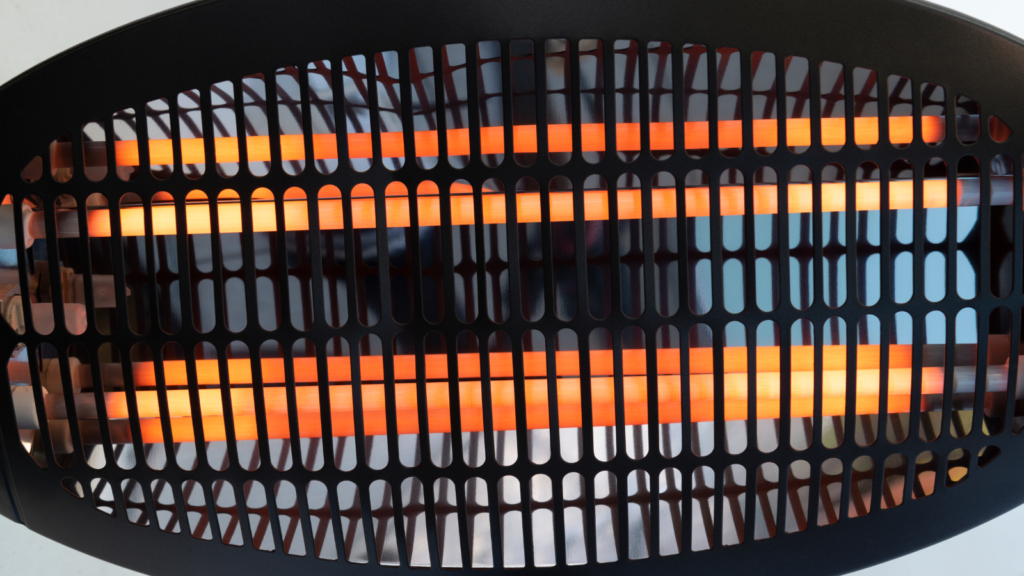
Knowing what to look for and how to ignite a propane heater properly can go a long way in ensuring your safety.
Features to Look For
When purchasing a propane heater, always consider safety features such as oxygen depletion sensors, tip-over protection, and auto shut-off. If children or pets live in your home, you’ll always want a heater with a safety grill.
Aside from safety, you’ll also want to consider convenience and versatility. You can find heaters with built-in thermostats, easy ignition systems, fuel level indicators, and other features that make them easier to use.
Safe Ignition Practices
Always follow the manufacturer’s instructions for igniting your propane heater. Make sure the area is well-ventilated and free from flammable materials. Keep a fire extinguisher close by for emergencies.
Consider a heater with the Piezo ignition system, which allows for easy and reliable starting without electricity or matches.
Frequently Asked Questions
Here are some commonly asked questions about propane heaters:
Can you leave them unattended?
It is highly discouraged to leave propane heaters unattended, especially indoors. Always turn them off if you’re leaving the room for an extended period.
How long do propane tanks last?
The lifespan of a propane tank depends on the heater’s BTU rating and how long the heater is running. Always check the manufacturer’s guidelines for specific information on tank duration.
Conclusion – Are Propane Heaters Safe to Use Indoors?
Indoor propane heaters are a great way to warm your home during a power outage or other disaster scenario or in your workspace during colder seasons. However, they have inherent risks users must take seriously. Carbon monoxide poisoning, fire hazards, and oxygen depletion are significant concerns that demand attention and responsible usage.
Propane heaters offer numerous advantages as off-grid heat sources for preppers during emergencies. Their efficiency, portability, and reliability make them a vital component of any emergency preparedness plan. While safety considerations are crucial, proper precautions can minimize risks and ensure safe usage.
Propane heaters have proven their effectiveness in real-life scenarios, providing warmth and comfort when other heating sources are unavailable.
By incorporating propane heaters into their preparedness plans, preppers can equip themselves with a reliable and efficient heat source to withstand emergencies and ensure their well-being.
Read our Prepping List for more information about prepping!
